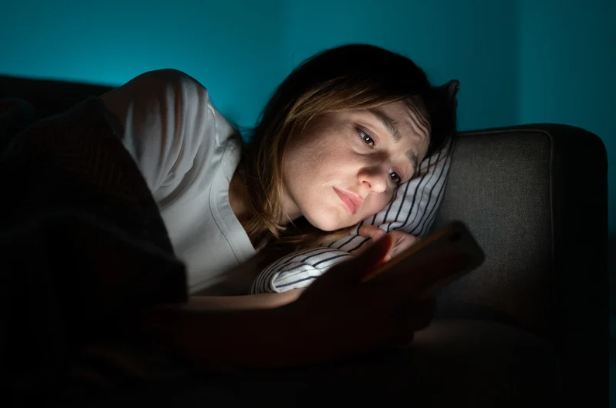Excessive screen time can contribute to anxiety, depression, and disrupted sleep—Forge Health provides expert support to help you break free from digital overload and build healthier habits for your mental well-being.
The Hidden Toll of Mobile Devices on Mental Health
In today’s digital world, smartphones have become an extension of ourselves. We wake up to them, check them compulsively throughout the day, and fall asleep with them by our side. While technology has undeniably improved connectivity, excessive screen time is taking a serious toll on our mental well-being. Studies show that excessive smartphone use is linked to increased anxiety, depression, and poor sleep quality (Elhai et al., 2017). The constant barrage of notifications, social media comparisons, and doomscrolling can overstimulate our brains and lead to mental fatigue.
The Science Behind Smartphone-Induced Stress
Research has found that the overuse of mobile devices can lead to heightened levels of stress and anxiety. One study published in the Journal of Behavioral Addictions revealed a strong correlation between smartphone dependency and symptoms of depression and anxiety (Elhai et al., 2017). Social media, in particular, can contribute to low self-esteem and feelings of inadequacy, as it often fosters unrealistic expectations and promotes curated versions of reality. Moreover, blue light emitted from screens interferes with melatonin production, leading to disrupted sleep patterns and increased risk of mental health issues (Cajochen et al., 2011).
Small Changes, Big Impact: Tips for a Healthier Digital Detox
Participating in “Phone-Free February” doesn’t mean you have to completely abandon your smartphone, but small, intentional changes can make a significant impact on your mental health. Here are some simple ways to reduce screen time and reclaim control over your digital habits:
- Set Screen-Free Hours – Designate times of the day where you put your phone away, such as during meals or the hour before bedtime.
- Disable Unnecessary Notifications – Constant alerts can trigger stress and disrupt focus. Turn off notifications for non-essential apps.
- Use Grayscale Mode – Switching your phone to grayscale reduces its visual appeal, making it less tempting to scroll mindlessly.
- Create Physical Boundaries – Keep your phone in another room while sleeping to avoid bedtime scrolling.
- Engage in Offline Activities – Replace screen time with activities that nourish your mind, such as reading, exercising, or meditating.
How Forge Health Can Help
At Forge Health, we recognize the growing impact of digital addiction on mental well-being. Our team of licensed clinicians offers evidence-based therapy for individuals struggling with anxiety, depression, and technology overuse. Through cognitive-behavioral therapy (CBT), mindfulness practices, and personalized treatment plans, we help individuals develop healthier habits and improve their mental resilience.
If you or a loved one are feeling overwhelmed by digital overload, we’re here to help. Reach out to Forge Health to take the first step toward a healthier, more balanced life.
Questions
If you’d like to speak with someone about your behavioral health needs, Forge Health is here to help. Contact us at (888) 224-7312 or visit Forge Health to take the first step toward whole-person care.
Sources:
- Elhai, J. D., Levine, J. C., Dvorak, R. D., & Hall, B. J. (2017). “Fear of Missing Out, Need for Touch, Anxiety and Depression Are Related to Problematic Smartphone Use.” Journal of Behavioral Addictions, 6(1), 37-45.
- Cajochen, C., Frey, S., Anders, D., Späti, J., Bues, M., Pross, A., & Stefani, O. (2011). “Evening Exposure to a Light-Emitting eReader Affects Sleep and Circadian Timing.” Proceedings of the National Academy of Sciences, 112(4), 1232-1237.
